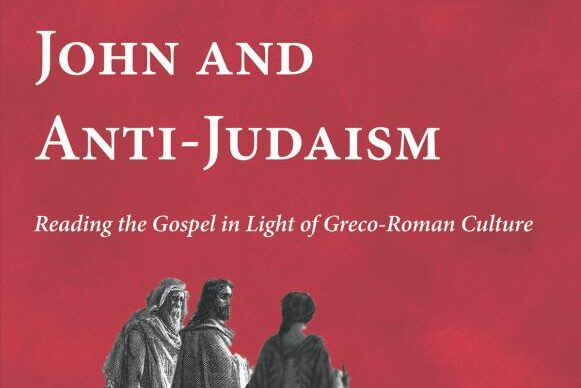Is Polarization at the Core of what it Means to be Human? To be a Christian? |
This summer I published my first book: John and Anti-Judaism: Reading the Gospel in Light of Greco-Roman Culture (Pickwick, 2021). Writing the book allowed me to take a “deep dive” into how Greeks, Romans, and Jews related to one another. I used this information to explore John’s portrayal of “the Jews.” Some scholars argue that John is an “anti-Jewish” Gospel, arguing that John is replacing Judaism with belief in Christ. However, there is much evidence that, like Jesus, John was a Jew. In my book I take the position that the Jews in John’s Gospel serve as a foil for responding to the kinds of objections that Jesus and early Jewish Christians had to deal with. Hence, John was not “anti-Jewish” as much as the Gospel was “fulfilling Judaism”.
John was faced with explaining why some Jewish people found it difficult to accept Jesus as the Messiah. In John’s time Judaism was a vibrant, attractive way of life and many Gentiles, Christian or non-Christian, were attracted to Judaism because of its ancient legacy of faith, its loving God, and its strong morals. Jewish Christians who were being persecuted by non-Christian Jews needed assurances that they had not made a mistake in choosing to follow Jesus. John’s Gospel tries to make belief in Christ more attractive and demonstrate how faith in Christ is really an “upgraded” form of Judaism. Over time, as the church became more Gentile, these “upgrades” came to be reinterpreted by Christians as a rejection of Judaism.
Writing the book highlighted for me that a core tendency of human nature is to falsely conclude that being “for” one thing automatically makes us “against” something else. Polarization, division, and hate have been causing a lot of pain in our families, churches, and communities. We make similar decisions in other areas of life as well: we want to be around people who look like us, talk and think like us, have the same amount of money, and share similar hobbies and interests. Consciously or unconsciously, we enforce conformity. Even non-conformists enforce conformity in their non-conformity! Being “pro-A” means being “anti-B.”
When reading John, it’s “anti-Judaism” sounds like it is polarized against “the Jews” and “the world.” Yes, the Gospel of John uses the language of polarization, but this is not how it really views things. While the world is polarized against God, God loves the world, sends Jesus to the Jewish people – the members of the world most likely to recognize Him – and Jesus deals with the world’s sin (John 1:11; 1:29; 3:16). Jesus calls his people “from out of the world” (John 17:6), meaning our origins in the world are core to our identity as Christians. In both John’s Gospel and the world, humanity is polarized against other groups, parties, philosophies, and even God Himself. But Jesus’ ministry shows that God works to heal polarization and division. As Martin Luther says, Jesus is an expression of deus pro nobis, or “God for us.”
Jonathan Numada, Ph.D., Assistant Professor of Biblical Studies
